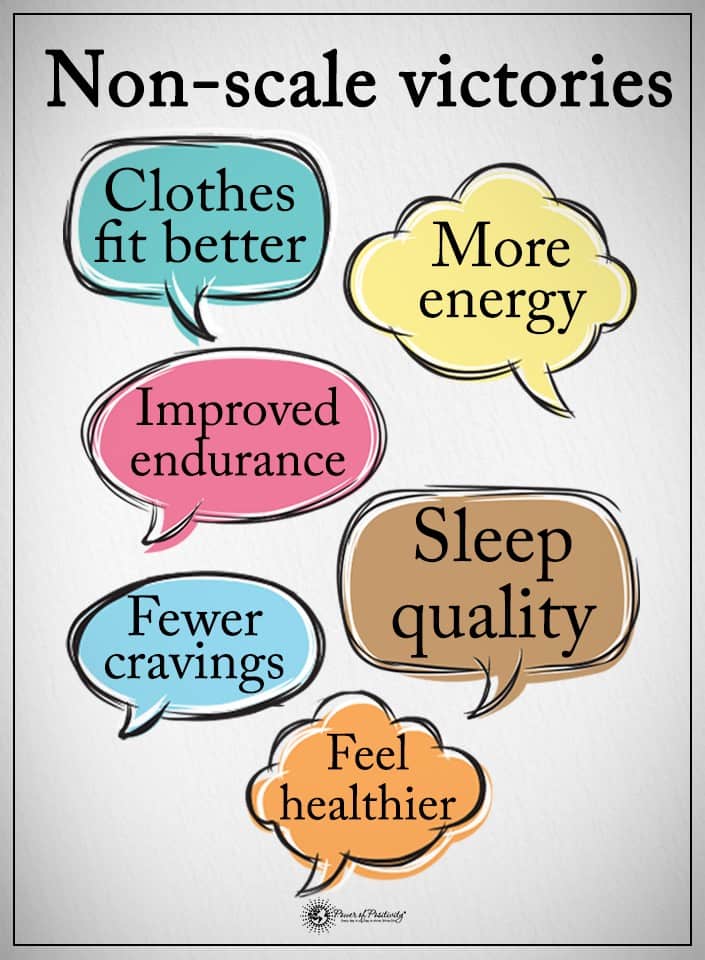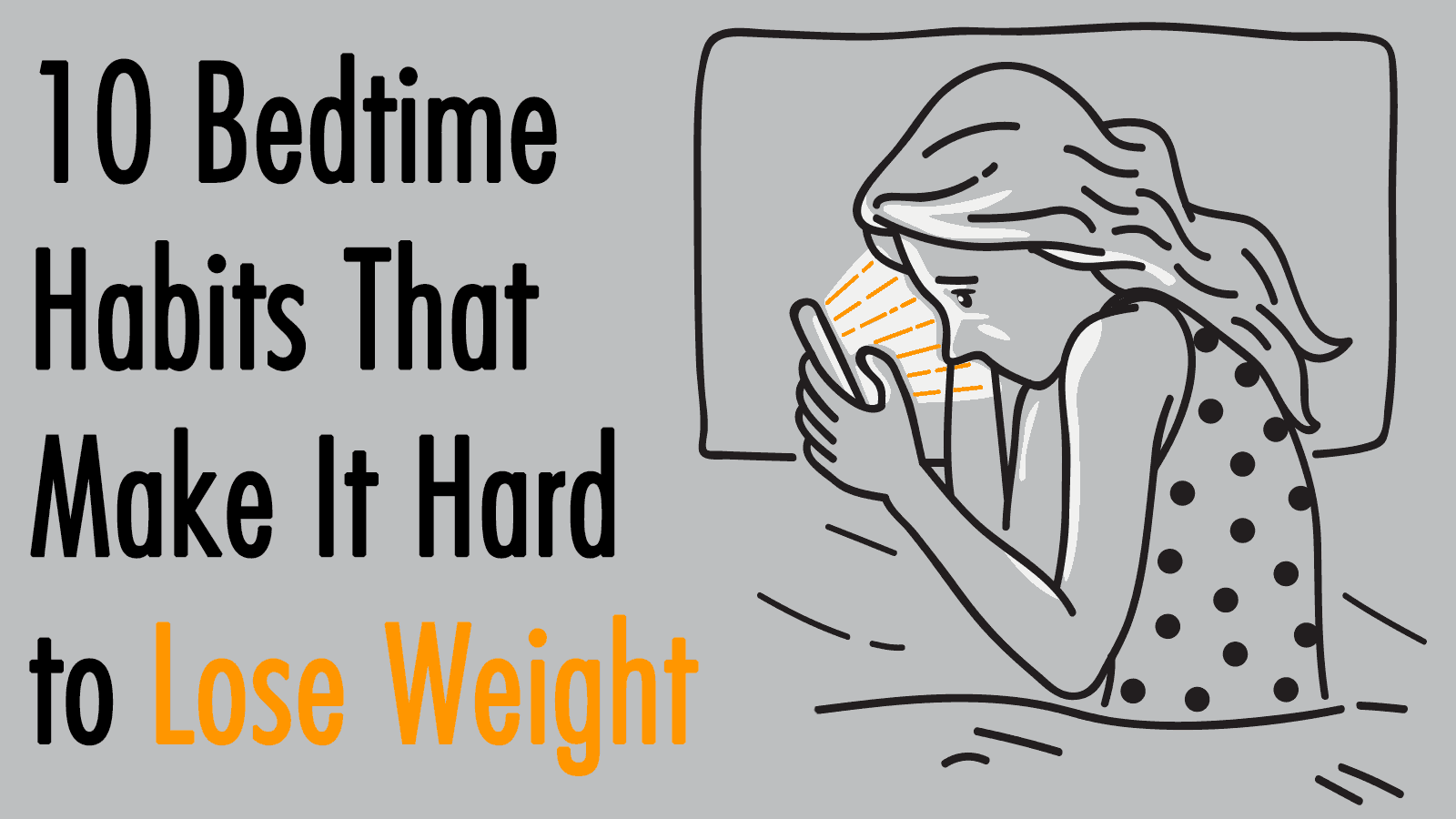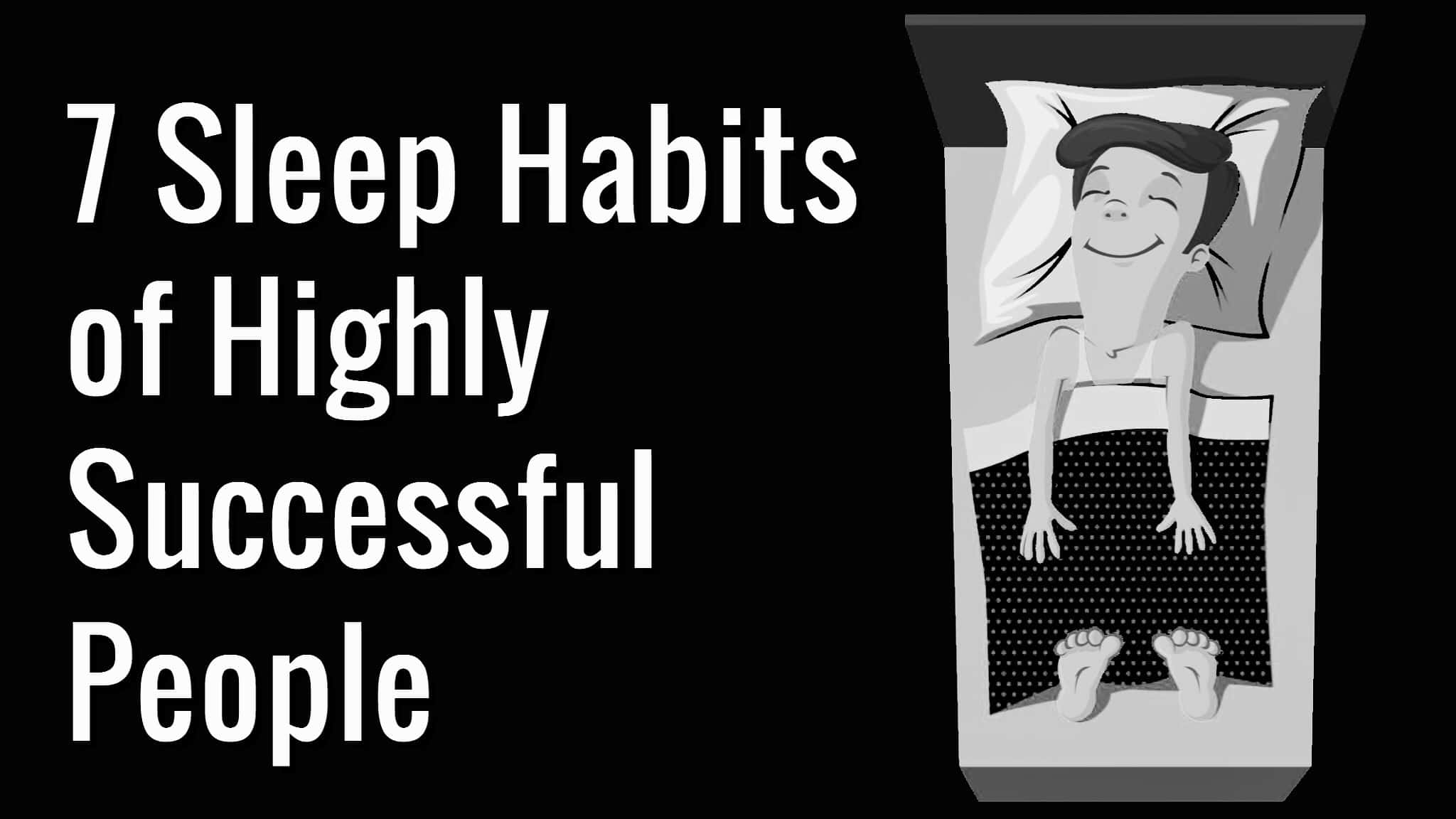As we’ve mentioned numerous times, there is much more to maintaining and losing weight than diet and exercise. How you sleep may influence how easily you lose weight, for example. In this article, we share ten bedtime habits that can make losing weight a colossal pain in the rear. The solution to each of these couldn’t be simpler: do the opposite!
10 Bedtime Habits That Make It Hard to Lose Weight
“Sleep and weight have been linked by scientists for a long time now. On average, the less people sleep, the more they weigh, and the more likely they are to put on excess pounds over time.” – The National Sleep Foundation (Source)
-
Lack of sleep
Research has found an inextricable link between lack of sleep (four hours per night) and increased appetite, cravings, and hunger. Worse, people are more likely to opt for foods dense in carbohydrates. Studies have, consequently, discovered a relationship between poor sleeping habits and obesity, including in children and adolescents.

-
Use of digital devices
Our smartphones and tablets emit blue light, which sharpens attention and reaction time and increases wakefulness. While these benefits are undoubtedly beneficial during daytime hours, they are counterproductive when drifting off to sleep. And if your sleep suffers, you are less likely to lose weight, as stated above. Try allocating 30 minutes to an hour of screen-free time before lights out. If you use your device before bed, install a free app that blocks blue light emissions.
-
Consuming caffeine
Caffeine blocks the action of adenosine, a chemical that helps us sleep. A good rule of thumb is to refrain from too much caffeine during the day and to stick with non-caffeinated drinks after dinnertime. Caffeine is also a diuretic, which may cause us to become dehydrated if misused; this is a problem because we essentially fast while sleeping, and the body uses stored liquids to nourish the body while we rest. If you wake up dehydrated, you’re more likely to consume unhealthy foods, and less likely to lose weight.
-
Eating late
Per a study conducted by researchers at the University of Pennsylvania School of Medicine, eating late at night causes weight gain, spikes cholesterol and insulin levels, inhibits metabolic function, and increases hormones linked to diabetes and heart disease. Namni Goel, Ph.D., says that late-night snacking is “implicated in diabetes, and cholesterol and triglycerides” caused by the body’s glucose and insulin hormones spike.
-
Lack of exercise
While the role of exercise is somewhat inflated concerning weight loss, regular activity does help with shedding pounds. Regarding overall health, there is nothing more beneficial than regular, moderately-intense exercise. The various benefits of physical activity include more energy and a better sex life, as well as improvements in fighting disease, heightening mood, and, of course, promoting sleep! To maximize these benefits, try leaving a three- to five-hour gap between exercise and lights out.
-
Too much light
For reasons beyond comprehension, some people like to sleep with the light on! Per research, exposure to even low lighting levels can disrupt sleep and promote depressive symptoms. One hypothesis for these effects is that sleep is necessary to restore and re-balance the brain’s neurotransmitters. Sleep disruption, then, can inhibit this process. And once again, hindrances to your sleep can affect your efforts to lose weight. If you like brightness in your room while dozing, get a cheap night light.
-
Midnight munchies
The body’s metabolic rate drops significantly during sleep to conserve energy and repair itself. (This helps to explain why a good breakfast is so vital to metabolism and overall health, by the way.) Given that we are far more likely to crave refined carbohydrates and other junk foods during this time, eating when we’re supposed to be sleeping can quickly sabotage plans to lose weight.
-
No sleeping schedule
While you don’t need to go to bed at the exact same time every day, you should have about a five- to 10-minute window in which you do so. Our body’s sleep/wake cycle, the circadian rhythm, is very sensitive to change. It is also quick to become wayward and fall into bad habits. To avoid this unhealthy pitfall, consider sticking to a sleep schedule. (If you’ve been too flexible with your sleeping habits, reestablishing a routine may take some time.)
-
Too much alcohol
While alcohol can help you fall asleep, but it disrupts the body’s transitions during sleep. Perhaps the worst side effect of alcohol (besides the nasty hangover) is that it seriously disrupts deep (REM) sleep. REM sleep is essential for the regeneration of energy that depletes during the day. Keep this in mind when you get an urge to grab a beer or glass of wine at night.
-
Not eating breakfast
As your mother said, breakfast is the most important meal of the day – and there are many reasons why this is so. As discussed, breakfast kick-starts your metabolism, which is critical for weight loss and feelings of satiety (“fullness”). Breakfast containing protein (which it should!) promotes muscle growth, enhances concentration and memory, and even lowers the risk of high cholesterol, diabetes, heart disease, and obesity.




















